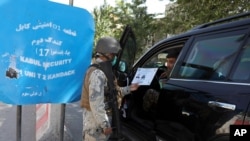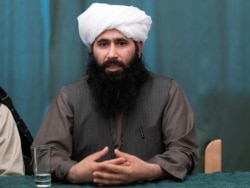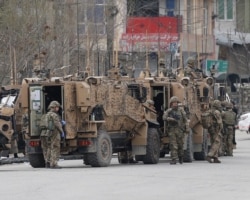Australia says it will close its embassy in Afghanistan this week, because it will not be able to guarantee security once international troops leave.
Australia’s Embassy in the Afghan capital of Kabul will shut on May 28.
Prime Minister Scott Morrison said he hoped the closure would be temporary, and that Australia could reopen an embassy in the future.
Until then, diplomats will fly into Afghanistan from other countries.
Morrison has said an “increasingly uncertain security environment” made it too unsafe for embassy staff to be based in Afghanistan. The precise location of the Australian embassy in Kabul has rarely been publicly identified, due to security concerns.
Mark Wales, a retired Australian Special Forces soldier, told the Australian Broadcasting Corporation that closing the embassy is a logical move.
“Kabul is still not a secure area. There is a lot of attacks happening there. So, it makes sense they would try and consolidate the embassy as U.S. and allied troops are drawn down. It is a natural step towards concluding the war. I think the Taliban are in a position of significant leverage. They have outlasted a superpower and all the allies that we could muster,” he said.
The Taliban "assures all foreign diplomats and staff of humanitarian groups that (we) will not pose any threat to them," Taliban spokesman Mohammad Naeem told VOA in response to the announcement by Australia.
Naeem said the Taliban will ensure a "safe environment" for the activities of foreign diplomats and aid workers in the country, noting his group has for years been working closely with humanitarian organizations in the strife-torn country.
"In the future, they don't have to worry about running their business as usual," the spokesman asserted.
The Taliban is said to be controlling or contesting more than half of Afghanistan's 34 districts.
There has been a surge in violence in recent weeks since U.S. President Joe Biden announced the withdrawal of American troops, which will bring the NATO-led operation to an end.
Some analysts have expressed concern that the military pull-out could send Afghanistan back into a full-scale conflict.
There are also concerns for Afghan nationals who worked with the Australians, particularly if peace talks between the Afghan government with the Taliban, a hard-line Islamic movement, fail.
A special investigator probing allegations of war crimes by Australian special forces in Afghanistan said the closure of the embassy in Kabul was “not…ideal” but that contingencies to speak to witnesses were in place.
Almost 40,000 Australians were deployed to Afghanistan during 20 years of war. Forty-one military personnel were killed. It is estimated that 60,000 members of the Afghan security forces died and nearly twice as many civilians.
About 80 Australian troops remain in the country, and they will be brought home by September.
VOA's Ayaz Gul in Islamabad contributed to this report.






